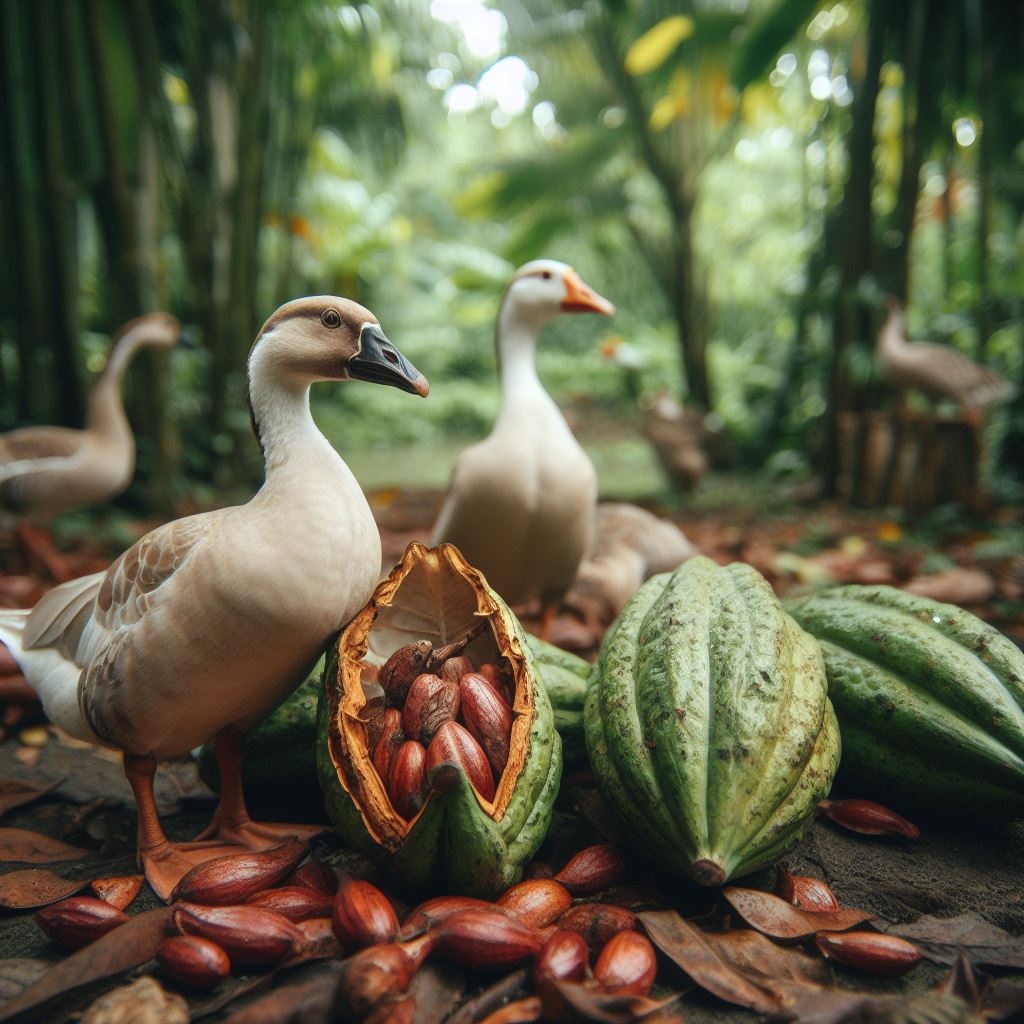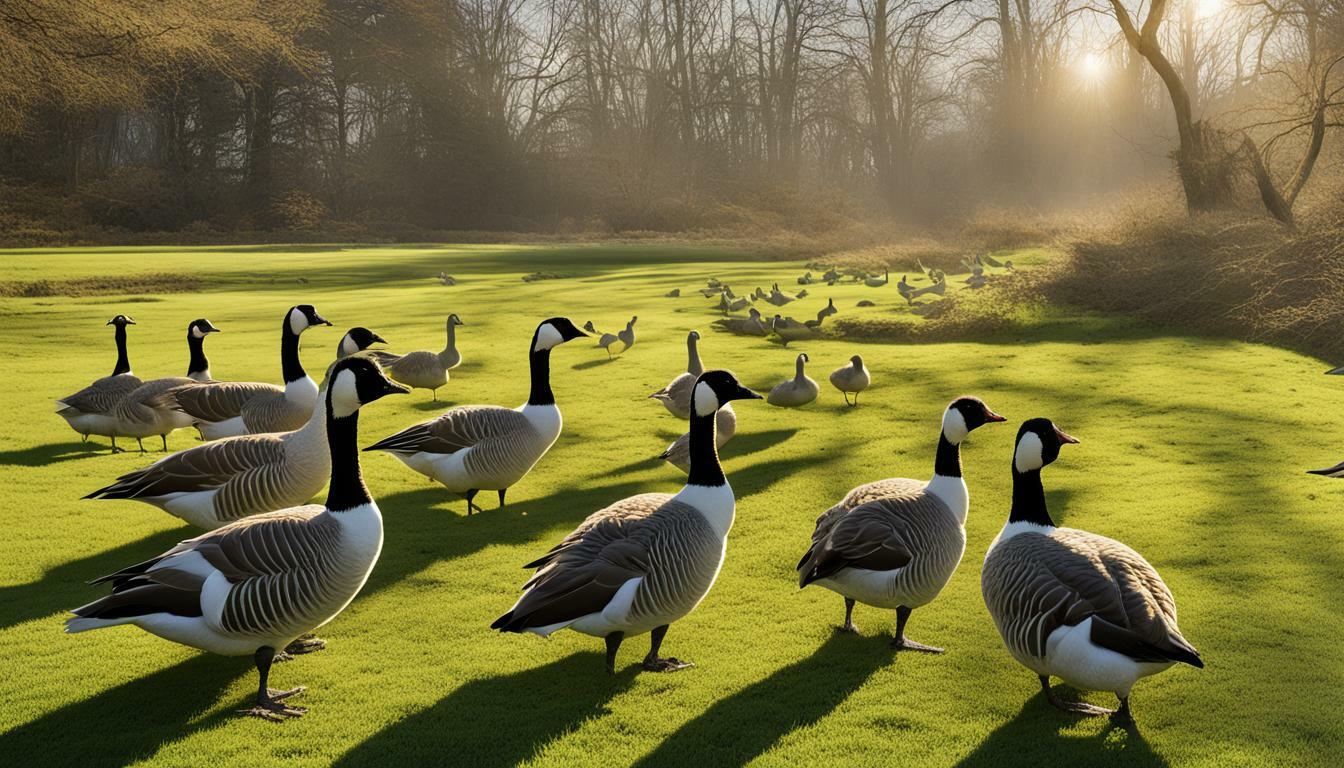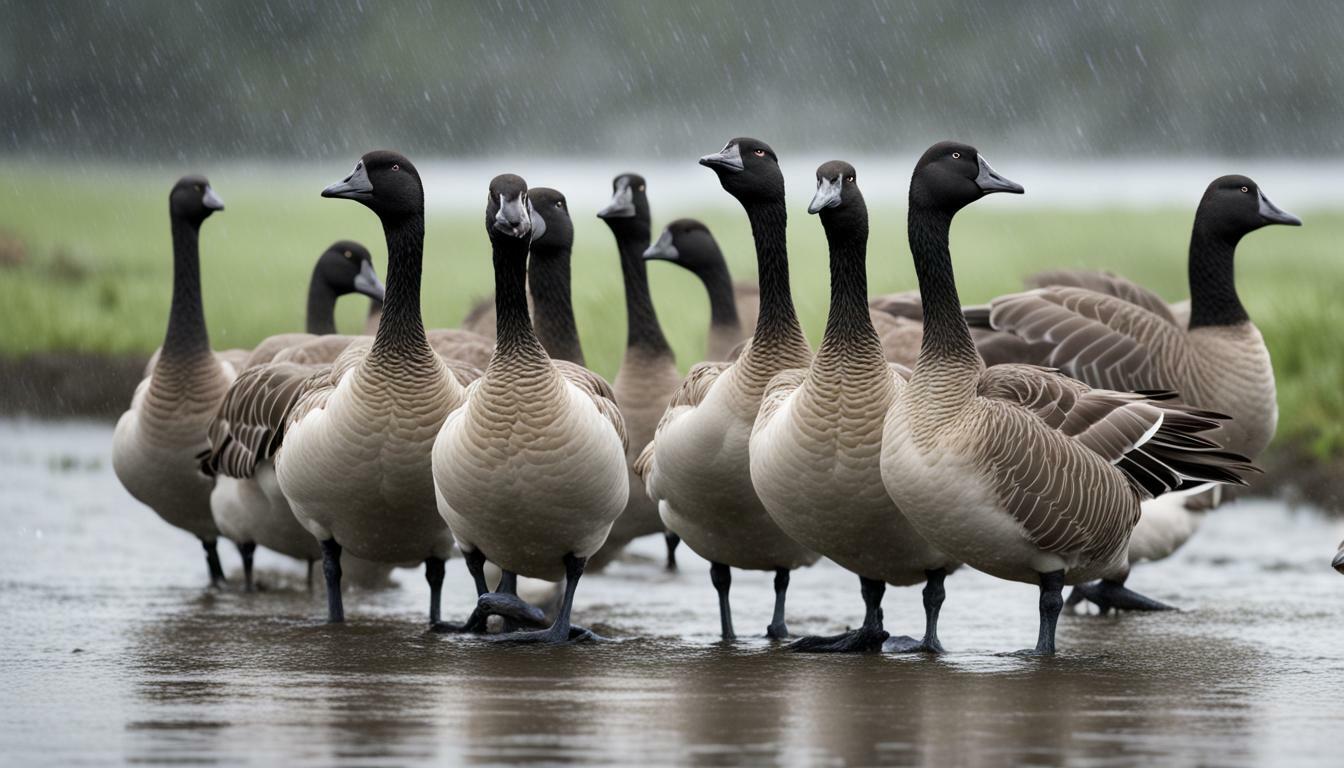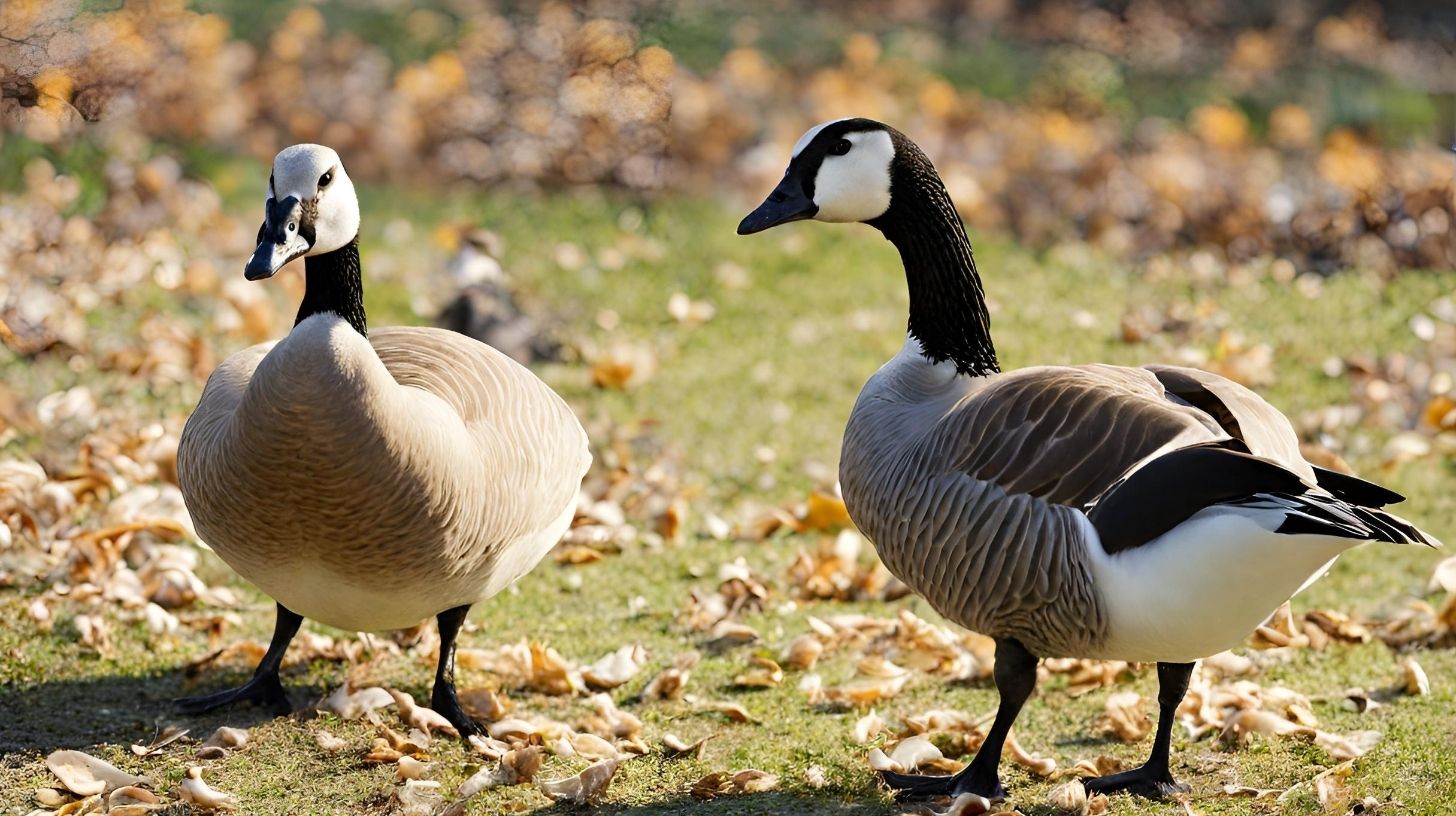Can Geese Eat Watermelon? Summer Snack

Table of content:
Watermelon is a juicy, sweet summer fruit that many people enjoy. It’s also a fruit that geese may try to snack on if they encounter it. But can geese eat watermelon? Is it safe for them and does it provide any nutritional value? Let’s take a closer look at what geese can eat and the pros and cons of feeding watermelon to our feathered friends.
A Look at the Geese Diet
Geese are herbivores, meaning they only eat plant foods. In the wild, geese graze on grasses, aquatic plants, seeds, grains and some fruits. They use their strong beaks and long necks to forage for the vegetation that makes up their diet.
Geese have muscular gizzards, which are specialized stomachs containing sand and grit. The gizzard grinds up food after it’s been swallowed, breaking down fiber and plant matter. This allows geese to digest a wide variety of foods, even those that are fairly tough.
When it comes to nutrition, geese need to get adequate carbohydrates, protein, vitamins, minerals and fat from the foods they eat. They forage and graze most of the day to satisfy their nutritional requirements and energy needs.
How a Goose’s Digestive System Works
Geese have a digestive system well-suited to their plant-based eating habits. Like other birds, their digestive system includes:
- Beak – For tearing and biting off pieces of food.
- Esophagus – Carries food from mouth to stomach.
- Crop – Storage pouch where food is moistened before moving to stomach.
- Proventriculus – Part of stomach that produces digestive juices.
- Gizzard – Muscular stomach with grit used for grinding food.
- Intestines – Where nutrients are absorbed and waste is formed.
The goose’s digestive system is equipped to break down raw fruits and vegetables, including harder to digest foods. The gizzard in particular gives them an advantage in gaining nutrition from foods humans may struggle to break down.
Evaluating Watermelon’s Safety and Nutrition
So now we know a bit about a goose’s digestive system and diet. But what specifically about watermelon? Is it a safe, nutritious food or should geese avoid this summer treat?
The good news is that watermelon is non-toxic to geese. The flesh, rind and seeds contain nothing poisonous or harmful. The main safety concern would be if a goose swallowed large pieces of watermelon rind or whole seeds, which could potentially cause an intestinal blockage.
As far as nutrition, watermelon is made up mostly of water and carbohydrates in the form of natural sugars. A 1 cup serving of diced watermelon contains:
- Calories: 46
- Protein: 1 gram
- Carbs: 11 grams
- Vitamin A: 12% RDA
- Vitamin C: 14% RDA
- Potassium: 4% RDA
Watermelon also contains a small amount of fiber, magnesium, phosphorus and B vitamins. Overall, it can provide hydration, antioxidants and some key nutrients. Though it shouldn’t be relied on as a main source of goose nutrition.
Can Geese Eat Watermelon Rinds?
In addition to the flesh, geese may nibble on watermelon rinds too. Rinds make up about 20% of a watermelon’s weight. They’re a good source of citrulline, an amino acid, and contain small amounts of vitamin A, vitamin C, magnesium and potassium.
The tough, thick rind is mostly made of fiber. While geese can potentially digest pieces of watermelon rind, their gizzards would have to work hard to break it down. Swallowing larger pieces could potentially obstruct the intestines.
So while the rind is not toxic, it doesn’t provide much nutrition. And the high fiber content means it may not easily pass through the goose’s digestive tract. Monitor goose intake of rinds and limit their consumption.
Benefits and Risks of Feeding Geese Watermelon
Now that we’ve covered watermelon’s nutritional value and safety, what are some potential benefits and risks of feeding geese this fruit treat? Here are a few pros and cons to consider:
Potential Benefits:
- Provides hydration, especially important in summer heat
- Contains some beneficial nutrients like vitamin A and C
- Provides variety to diet and foraging activities
Potential Risks:
- Too much can cause loose stools or diarrhea
- High sugar content without adequate protein or fat
- Could develop nutritional imbalances or deficiencies
- May teach geese to approach humans for food
Overall, geese can gain some nutritional value from watermelon in moderation. But it should not become a staple food source or replace a balanced diet.
Feeding Geese a Healthy, Natural Diet
While the occasional watermelon treat is unlikely to harm them, geese should primarily eat a diet suited to their natural nutritional needs. Here are some tips on feeding geese a healthy diet:
- Provide plenty of grass and aquatic plants for grazing.
- Offer a nutritionally balanced waterfowl feed or poultry feed.
- Use scratch grains like corn, wheat, oats or milo in moderation.
- Offer healthy produce like kale, peas, berries and melons occasionally.
- Avoid too much bread, popcorn or junk food that provides little nutrition.
- Ensure they have enough grit and rocks available to aid digestion.
- Provide clean drinking water at all times.
Following these natural feeding guidelines will help support good digestive health and fulfill all the nutritional requirements geese need.
Can Canadian Geese Eat Watermelon?
Canadian geese are one of the most common goose species people encounter. So can these large waterfowl eat watermelon just like other geese?
The answer is yes, Canadian geese can eat watermelon. They have the same herbivorous diet and digestive system as other geese and swans. Their guts are adapted to get nutrition from raw fruits and vegetables, including melons like watermelon.
One thing to note is that Canadian geese are typically larger than other goose breeds. A full-grown Canadian goose can weigh 10-15 pounds compared to 4-8 pounds for other goose varieties. Their greater size means they may eat more by volume.
However, despite their large appetite, it’s still best to feed Canadian geese a balanced diet. While watermelon shouldn’t pose any toxicity risks, gorging on too much could cause health issues for these large waterfowl. Monitor portions and ensure they have abundant access to greens, grains and quality bird feed too.
Is Watermelon Good for Geese?
To sum things up – is watermelon ultimately good for geese? The answer is yes, in moderation. Watermelon provides important hydration, nutrients and enjoyment to geese. Its sweet taste and juicy texture probably make for an exciting foraging experience.
However, geese should not get too much of their daily nutrition from watermelon alone. It is low in protein, fat, and some vitamins and minerals they require. Make watermelon an occasional treat, not a dietary staple.
Focus on providing geese with a diverse diet centered on greens, aquatic plants, bird feed, and modest amounts of seed and grain. This will fulfill all their nutritional requirements. Then feel free to offer small servings of watermelon as a supplemental fruit snack.
If you want to share watermelon with the geese in your yard or at the park, follow proper feeding practices. Cut watermelon into small pieces to reduce choking risk. Spread pieces out widely to prevent competition. And be sure all geese get a chance to enjoy this sweet summer treat!
Welcome. I’m Adreena Shanum, the proud owner of this website, and I am incredibly passionate about animals, especially poultry. I founded adreenapets.com as a labor of love, stemming from my desire to share my knowledge and experiences with poultry enthusiasts worldwide.




